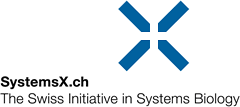A System’s Level Analysis of the Spatio-temporal Regulation of Signaling During Polarized Cell Migration
The objective of this project is to contribute to the understanding of the processes that drive cell motility. Two complementary approaches are being followed; therefore the project consists of two main parts: One part focuses on the static characterization of large-scale proteomic information, and the other on the investigation of dynamic interactions for parts of the system. High-throughput proteomic data provides evidence of the protein enrichment of the cell protrusions, as opposed to the cell body, upon stimulation of each one of three prototypical receptor systems (Integrins, RTK, GPCR). The aim is to reveal different signaling machineries that potentially regulate cell migration based on the investigation of similarities and dissimilarities among the different modes of cell motility, by combining the experimental data with network information from protein databases. The other part focuses on the aspects of the mechanistic understanding that regulates key components of the receptor systems, regarding activation of representative receptor systems for the trigger of adhesive and soluble cues. As regards the mediation of adhesion, a model for the early integrin activation is proposed to investigate the capability of the system to allow inside-out as well as outside-in signaling. For the response to soluble cues the study focuses on the activation dynamics of Erk, as a key player of the RTK. Based on data for ERK activation of single cells, the aim is to elucidate the possible dynamics and cross-talks that regulate this process.
Mot-clé: Integrin Signaling, Cell Migration, Proteomics, Computational Modeling
retourner
